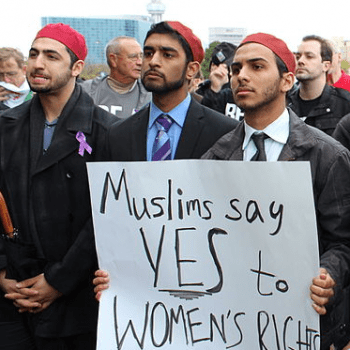Duma. Irbin. Hammurah. Siqbah. Jisrayn. Zamalka. Ayn Tarma. Jawbar. Mulayha. Kafr Batna. Mu’addamiyah. Darayya.
They sound foreign, biblical to American ears, but they stand beside other, more familiar names. Troy. Cyprus. Wounded Knee. NanJing. Odessa. Warsaw. Dresden. Kent State. Sabra and Shatilla. Tian An Men.
All places where people were slaughtered for the sake of land, power, and politics.
For the past three weeks, the world has been asking itself, as we must do all too frequently, “When should we intervene? Where should the line be drawn? When a government is oppressive enough? When a conflict deadly enough? When certain types of weapons have been used? When a high enough body count has been reached?”
There are no easy answers. Does a chemical attack that kills some 1400 civilians, men, women and children whose only crime was to live in an area controlled by rebels against their government deserve more , or less, of a response than tanks rolling through Tian An’Men Square and massacring 3-4,000 peaceful protestors, or ethnic warriors killing 500,000 of a rival ethnic group?
President Obama has proposed tactical strikes to cripple Bashar Al-Assad’s capacity to carry out more chemical weapons attacks. Today, he announced that he and Russian president, Vladimir Putin had come to an agreement that would lead to the destruction of Syria’s chemical weapons. Al-Assad has a week to document his chemical weapons supplies and facilities. Then “International inspectors are to be on the ground in Syria by November. During that month, they are to complete their initial assessment and all mixing and filling equipment for chemical weapons is to be destroyed. They must be given “immediate and unfettered” access to inspect all sites. All components of the chemical weapons program are to be removed from the country or destroyed by mid-2014.” (from http://www.cbsnews.com/8301-202_162-57602958/syria-chemical-weapons-agreement-reached-between-united-states-russia/) Obama reserves the right to a military response if this process does not go smoothly, or if there is suspicion that Al-Assad is trying to play games with the international community.
For many, a negotiated solution such as this is clearly preferable to a military strike. But for others, there remains strong doubt that Al-Assad will be forthcoming, and that he won’t try to create secret facilities or hide ones that are not currently known to the US and Russia. Many question what right does the US or Russia, or the UN even, have to dictate to Syria what it will or will not do. For others, there is a clear mandate that when you see oppression, you must stop it by whatever means necessary. And for many, there is the fear that not responding adequately will make the world less safe, will give other dictators or radical groups a green light for using chemical weapons in the future.
As a Muslim, as a progressive, as a humanist, I believe there are some ideals we must not lose sight of as we make these fraught decisions.
1) We are all brothers and sisters to one another. My concern for and commitment to justice, equality, opportunity, freedom, and basic human rights does not end at the border of the town, state, or country where I live. My compassion and my responsibility extends to all human beings. We are from one another, we are of one another. The Qur’an tells us, “O mankind! Reverence your Guardian-Lord, who created you from a single soul, from it created its mate, and from the pair of them spread countless men and women far and wide. Reverence God, through whom ye demand your mutual rights, and reverence this tie of kinship: for Allah ever watches over you.” 4:1. The universal kinship of humankind, to me is so obvious, and so basic. Whether you come to it through religious text, philosophical reflection, common sense or emotional response, it clear that though we speak different languages, follow different religions, adhere to different political or social or moral philosophies, we are still united by our common humanity.
2) Governments, countries, corporations have no rights. People have rights. Authority does not stem from the fact that a government or a nation exists; it stems from the fact that the people living in a geographic region have come together to create a geopolitical entity and give authority to a particular government. The people in a region may decide to dissolve the nation and government they have created, or to change them, or to maintain them. They may merge nations or secede from nations. Bashar Al-Assad does not have the right to continue ruling, nor, for that matters does any other President or King. And when Presidents and Kings behave atrociously, immorally, it is the people’s right to remove them from power. In cases when they cannot do so, either through the ballot box, the judicial system, mass protests or martial action, then our compassion and the brotherhood of mankind compels us to act. The Qur’an asks us, “Why should you not fight in God’s cause and for those oppressed men, women, and children who cry out, ‘Lord, rescue us from this town whose people are oppressors! By Your grace, give us a protector and give us a helper!’?” 4:75 That support and succor can take many forms, from moral and emotional support to humanitarian relief, from protest marches and petitions to, even, imposed disarmament of dictators and tactical strikes.
In deciding whether and when to take action to assist people in getting rid of dictators and oppressive governments, perhaps the best rule of thumb is that universal one — do unto others as you would have them do unto you. The Syrian people have been crying out for help, for humanitarian relief, for pressure on Assad, for the international community to speak out and to act. We should respond. Naturally, there are many different opinions about tactical strikes and negotiated destruction of chemical weapons. Just as there are different opinions, clearly, on whether Al-Assad needs to go. It is our responsibility to try and understand what the most humane solution, the one that would most clearly mirror what we would want others to do for us in a similar situation, and then to do our best to help them achieve it.











